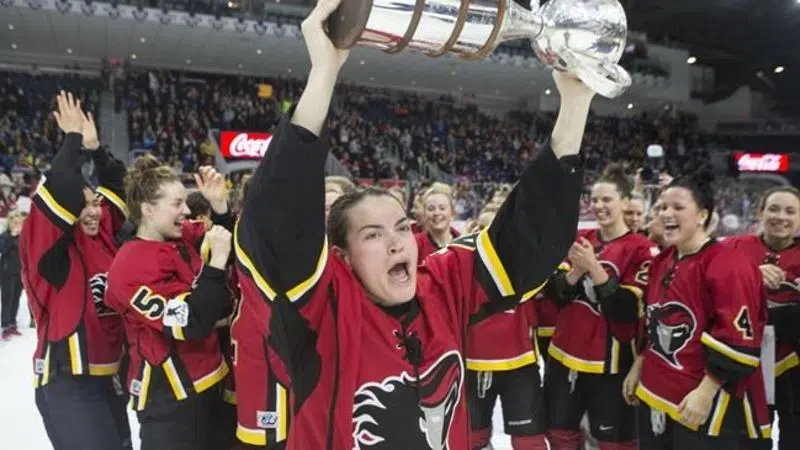
Calgary Inferno’s championship season celebrated at city hall while league folds
CALGARY — As their league sells off trophies and jerseys, the Calgary Inferno’s championship season was recognized Monday with the city’s mayor proclaiming it “Calgary Inferno Day.”
A week after the Inferno hoisted the Clarkson Cup in Toronto on March 24, the Canadian Women’s Hockey League abruptly announced it would fold because the six-team league was “economically unsustainable.”
The Inferno were saluted in Calgary council chambers two days before the CWHL officially ceases operations Wednesday.


